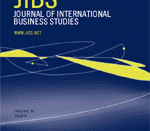Countertrade is the practice in international trading of paying for goods in a form other than by hard currency (Oxford, 2002). It can also be described as an alternative means of structuring an international sale when conventional means of payment are difficult, costly, or nonexistent (Hill, 2006).
In most cases counter trading takes place where a company in a country that has little foreign currency wants to purchase goods from a company in another country. As the company cannot obtain the appropriate currency to purchase the goods it wants, it offers goods in return for the goods it needs (Leader et al, 1990)
Countertrade transactions are on the increase. According to West (2002), countertrade makes up an estimated 20 percent of all world trade. Hence, a significant amount of international transactions now involve some form of countertrade agreement. This is especially so in the communist countries and also emerging markets where the availability of acceptable hard currency is poor (Reynolds, 2006).
Studies highlight the role that countertrade may play in helping foreign firms develop relationships with developing countries. Developing business relationship in such countries may be hindered by their lack of cash or poorly convertible currency. Foreign firms, however, may be keen to enter rapidly to gain first mover advantages (Bridgewater et al, 2002).
According to Cateora (et al, 2006), countertrade is a pricing tool that every international marketer must be ready to employ, and the willingness to accept a countertrade will often give the company a competitive advantage. If a company is unwilling to enter a countertrade agreement, it may lose an exporting opportunity to a competitor that is willing to make a countertrade agreement.
Given the problems that many emerging markets have short of hard currency to pay for their purchases and they want to pay with other...


